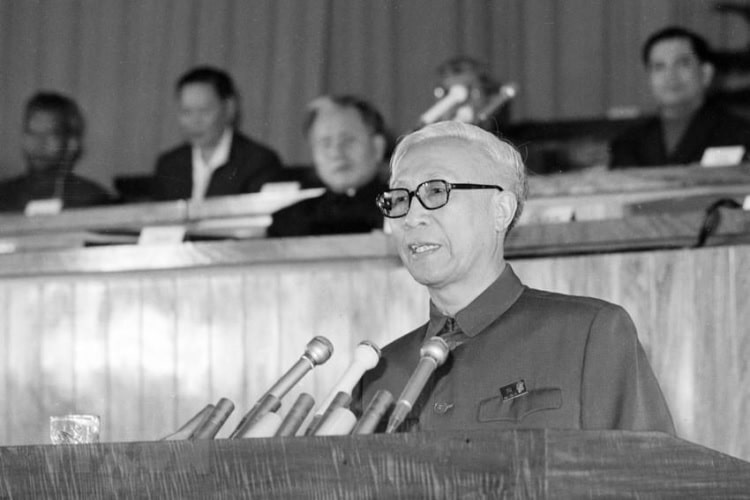A Symphony of Peace: Lê Đức Thọ’s Journey

Lê Đức Thọ (14 October 1911– 13 October 1990) was a Vietnamese revolutionary general, diplomat, and politician.
Life and Career
Lê Đức Thọ was born on 14 October 1911, in Nam Định Province, French Indochina.
He was born as Phan Đình Khải but later adopted the alias Lê Đức Thọ for his revolutionary activities. He joined the Indochinese Communist Party in the 1930s, becoming an active member in the struggle for Vietnamese independence from French colonial rule.
During the First Indochina War (1946-1954), he served as a commander in the communist forces and played a significant role in the fight against French colonial forces. After the Geneva Accords in 1954, which divided Vietnam into North and South, he continued to work for the communist cause in North Vietnam.
Lê Đức Thọ’s influence grew during the Vietnam War, particularly as he worked closely with other key communist leaders like Ho Chi Minh and Vo Nguyen Giap. He played a critical role in coordinating military strategy against U.S. and South Vietnamese forces. His leadership contributed to the resilience of the North Vietnamese army and the eventual success of the communist forces in the war.
As the war escalated, Lê Đức Thọ became involved in peace negotiations. He is best known for his role in the Paris Peace Accords of 1973, where he represented North Vietnam in talks with the United States. These negotiations ultimately led to a ceasefire and the withdrawal of American troops from Vietnam. For his efforts, Lê Đức Thọ, along with Henry Kissinger, received the Nobel Peace Prize in 1973. However, Lê Đức Thọ declined the honor, citing the continued violence in Vietnam.
After the war, Thọ held various government positions in the reunified Vietnam, including serving as the Deputy Prime Minister and Minister of Foreign Affairs. He continued to play a role in shaping Vietnam’s foreign policy.
Despite his involvement in peace negotiations, Lê Đức Thọ remains a controversial figure, particularly among those who view him as a symbol of the repressive communist regime in Vietnam. The communist government’s human rights abuses and suppression of dissent have led to criticism of his role in the post-war government.
Lê Đức Thọ passed away on 13 October 1990, in Hanoi, Vietnam, at the age of 78.
Award and Legacy
Lê Đức Thọ was jointly awarded the Nobel Peace Prize in 1973 along with Henry Kissinger, the U.S. National Security Advisor, for their roles in negotiating the Paris Peace Accords that led to a ceasefire in the Vietnam War. However, Lê Đức Thọ declined the Nobel Peace Prize, making him the only laureate in history to voluntarily reject the prestigious award. He declined it on the grounds that peace had not yet been fully achieved in Vietnam.
Within Vietnam, Lê Đức Thọ is remembered as a revolutionary leader who played a pivotal role in the country’s struggle for independence and reunification. His contributions to the communist cause are celebrated by the government, and he is honored as a key figure in Vietnam’s history.
Observer Voice is the one stop site for National, International news, Editor’s Choice, Art/culture contents, Quotes and much more. We also cover historical contents. Historical contents includes World History, Indian History, and what happened today. The website also covers Entertainment across the India and World.

